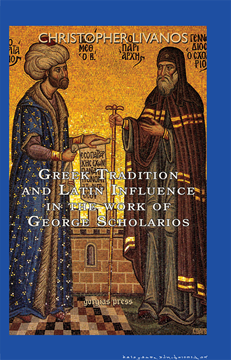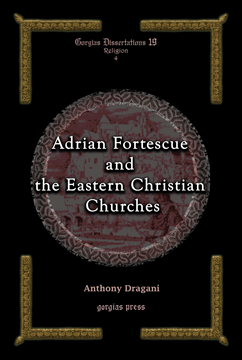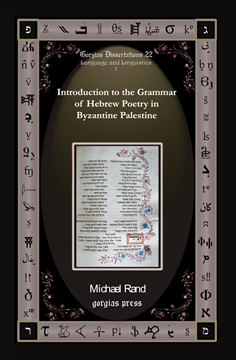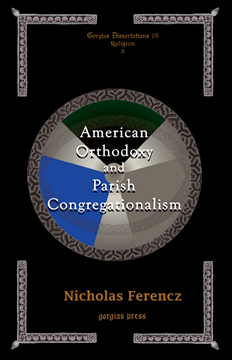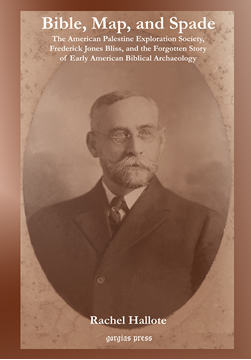Greek Tradition and Latin Influence in the Work of George Scholarios
“Alone Against All of Europe”
ISBN: 1-59333-344-7
This title is a study of the work and career of theologian and diplomat George Scholarios who became the first Ecumenical Patriarch of the Orthodox Church during the period of Ottoman Rule. Scholarios advocated the union of the Greek and Latin Churches, but he later became the leader of the anti-Unionist faction in the final years of the Byzantine Empire. Scholarios played an important role in East-West dialogues, including the Council of Ferrara-Florence in 1438-39. This book provides a fresh look at some of the cultural misunderstandings that took place at the Council and related dialogues.
$125.00 (USD) $75.00 (USD)
Adrian Fortescue and the Eastern Christian Churches
Series: Gorgias Studies in Religion 19
ISBN: 1-59333-345-5
Adrian Fortescue (1874-1923) was recognized as one of England’s foremost authorities on Eastern Christianity and helped to shape the English-speaking world’s understanding of the Eastern Churches. This book is a critical examination of his writings on the subject, analyzing what he said about the Eastern Christian Churches and highlighting his insights into key questions. It focuses on Fortescue’s understanding of the schisms and his thoughts as to how reunion can come about. The book concludes by comparing Fortescue's perspective to later advances in theology and historical scholarship in order to ascertain the long-term accuracy of his writings.
$145.00 (USD) $87.00 (USD)
Introduction to the Grammar of Hebrew Poetry in Byzantine Palestine
By Michael Rand
Series: Gorgias Studies in Language and Linguistics 22
ISBN: 1-59333-348-X
This book investigates the interaction between grammatical norms and poetic technique on the basis of a corpus selected from the oeuvre of the payyetan Eleazar be-rabbi Qillir. As a basis for this investigation, a descriptive/comparative analysis of the Qillirian dialect is offered. The first portion of the work is a grammar devoted mainly to morphology and syntax. The second portion of the work is an investigation of the poetic norms, as well as rhetorical techniques employed by Qillir, together with an assessment of their impact on the grammar. The overall aim of the project is to design an analytical framework within which a self-conscious poetic dialect might be investigated.
$221.00 (USD) $132.60 (USD)
American Orthodoxy and Parish Congregationalism
Series: Gorgias Studies in Religion 18
ISBN: 1-59333-195-9
Orthodox ecclesiology doctrinally and historically requires that all authority in the church be expressed by the bishop. The unity of authority, based upon the laying on of hands, is the lived expression of the oneness and catholicity of the church. American Orthodoxy, however, does not have such an authority structure, especially on the parish level. This study explores the divergence of practice from doctrine in the American church. The study concludes with a theological discussion of the problematic nature of parish congregationalism in Orthodoxy. It points toward the already-realized conciliarity of supra-parish structures as the paradigm for a reformation of parish authority structures.
$146.00 (USD) $87.60 (USD)
Bible, Map and Spade
The American Palestine Exploration Society, Frederick Jones Bliss and the Forgotten Story of Early American Biblical Archaeology
ISBN: 1-59333-347-1
This volume resurrects the forgotten history of early American involvement in biblical archaeology. Frederick Jones Bliss, an American from a prominent missionary family, is central to the story as he was the first of any nationality to scientifically excavate the tells of Palestine.
$142.00 (USD) $85.20 (USD)
A Syriac Chrestomathy
Series: Gorgias Handbooks 6
ISBN: 1-59333-346-3
`Enbe men Karmo Suryoyo is a chrestomathy intended primarily for students who have covered the essentials of Syriac morphology and syntax, but it should also interest anyone who enjoys Syriac literature in general. The twenty-six selections consist of examples of Syriac prose and poetry from the second until the thirteenth centuries AD. The readings reflect a wide and varied range of subject matter. Inevitably, selections of a religious nature predominate, but historical, ethnographic, chemical, astronomical, and linguistic excerpts produced by famous Syriac authors, as well as less familiar ones, have been included. A Syriac-English glossary and an index of grammatical points are included.
$139.00 (USD) $83.40 (USD)
